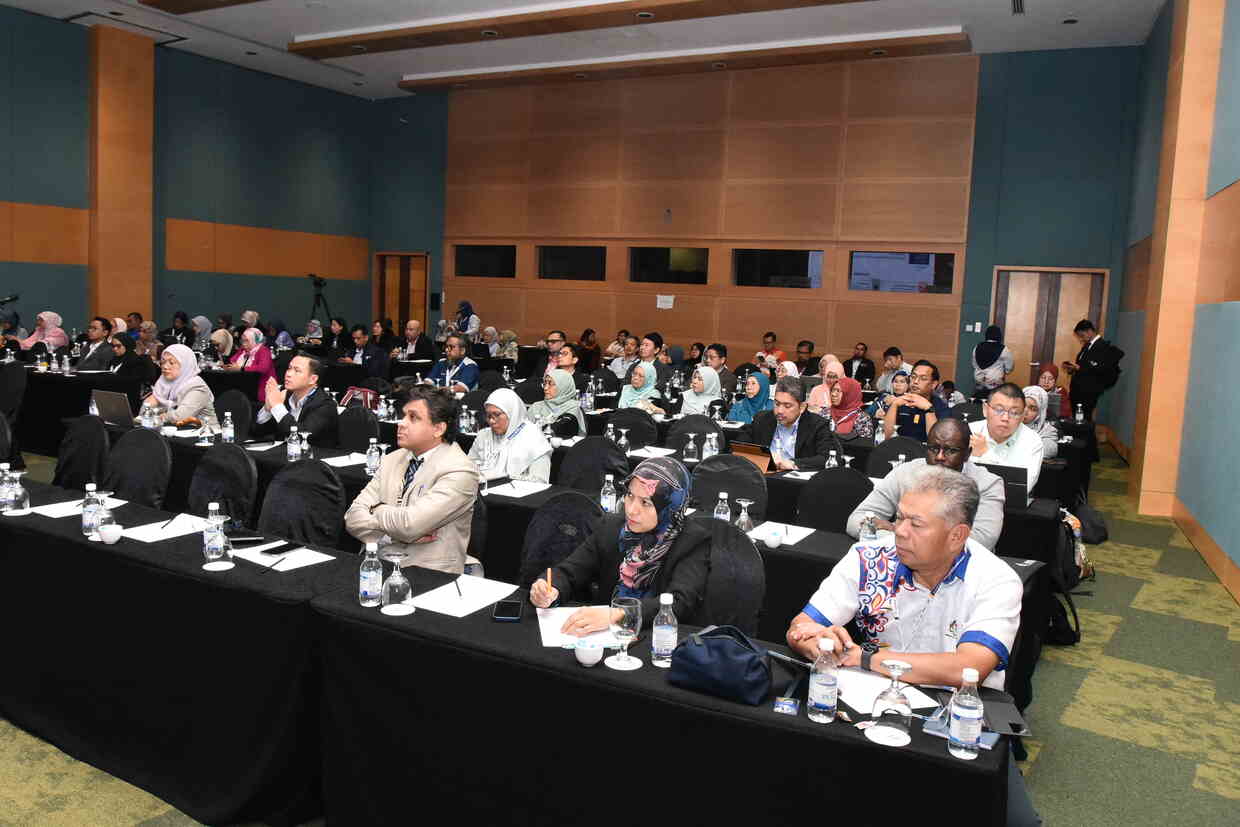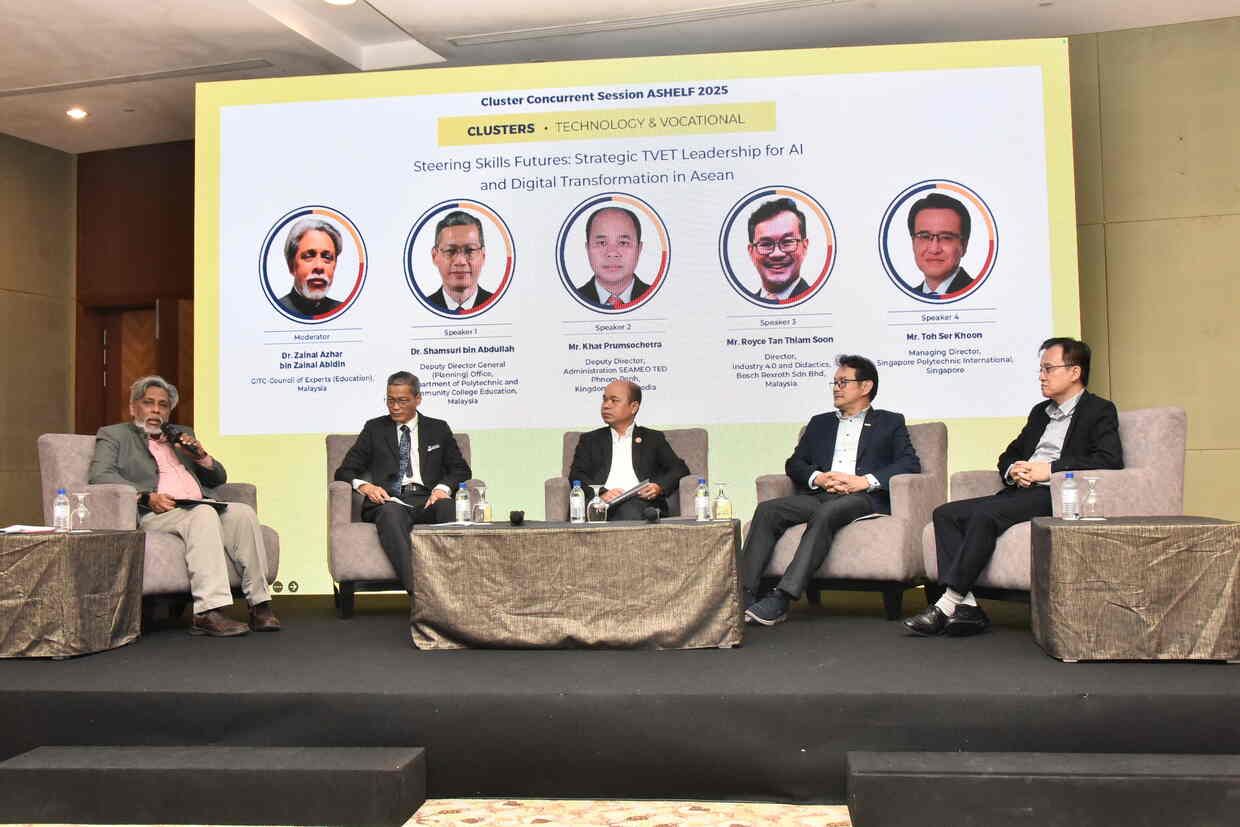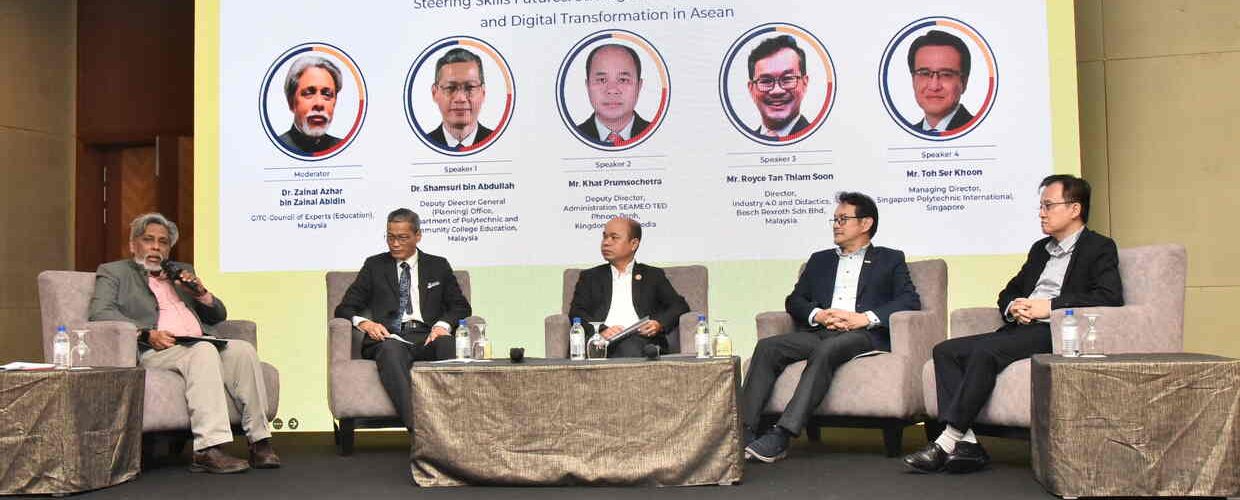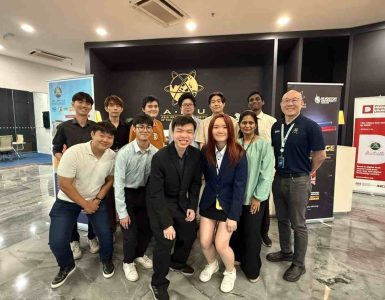Malaysia has reaffirmed its position as a regional leader in higher education with the hosting of the ASEAN Higher Education Leadership Forum (ASHELF) 2025, held in conjunction with the Putrajaya Festival of Ideas (FOI) 2025 at the Putrajaya International Convention Centre (PICC).
Jointly organised by the Ministry of Higher Education (MoHE), Universiti Pendidikan Sultan Idris (UPSI) and the Higher Education Leadership Academy (AKEPT), the forum has drawn leaders of higher education institutions, policymakers, academics, and industry partners from across ASEAN to chart a more sustainable, inclusive, and innovative future for higher education.
Reimagining higher education in ASEAN

Carrying the theme “Reimagining the Future of Higher Education in ASEAN,” ASHELF 2025 focuses on six strategic pillars: Teaching and Learning, Research and Innovation, Emerging Scholars, Planetary Health, Artificial Intelligence (AI), and Technical and Vocational Education and Training (TVET).
In his keynote address titled “ASEAN Higher Education Leadership: Navigating the Future Together,” ASEAN Secretary-General H.E. Dr. Kao Kim Hourn underscored the need for visionary and adaptive leadership to navigate the rapidly shifting global education landscape.
He called for stronger cross-border collaboration among ASEAN universities to build a competitive, human-centered knowledge ecosystem. “To move forward collectively, we must cultivate leadership that is not only visionary but also agile and authentic, capable of responding to the evolving needs of our societies,” he said.
A major highlight of ASHELF 2025 is its emphasis on embedding Diversity, Equity, Inclusion and Belonging (DEIB) principles into ASEAN higher education strategies. These align with the Joint Declaration on the Common Space in Southeast Asian Higher Education — a framework aimed at developing a Common Space Roadmap to guide regional transformation.
By advancing DEIB-driven initiatives, the forum seeks to ensure that the region’s higher education institutions remain inclusive and globally competitive, while fostering mutual understanding and sustainable growth across member states.

Strengthening ASEAN’s education network
UPSI Registrar, Helmi Zaifura Abdul Rahman, said the organisation of ASHELF 2025 demonstrates Malaysia’s — and particularly UPSI’s — dedication to strengthening regional higher education leadership.
“ASHELF is not merely a platform for knowledge sharing but a space for building strategic alignment among universities, industries, and regional agencies,” she said.
According to Helmi, with over 500 participants in attendance, the forum opens new opportunities for ASEAN universities to explore synergies in educational technology, AI, and TVET — all key areas in preparing future-ready graduates for global challenges.
“This aligns with Malaysia’s aspiration as ASEAN Chair 2025 to nurture visionary and resilient higher education leadership,” she added.
The closing session of ASHELF 2025 was officiated by Prof. Dr. Harshita Aini Haroon, Director of AKEPT, marking the conclusion of two days of collaborative discussions aimed at redefining the future of ASEAN higher education.
With participation from academic leaders from Brunei, Cambodia, Indonesia, Laos, Malaysia, Vietnam, the Philippines, Singapore, Thailand, Timor-Leste, and Myanmar, ASHELF 2025 further underscores Malaysia’s commitment to strengthening ASEAN’s higher education network as a foundation for human capital development and regional competitiveness.












Add comment